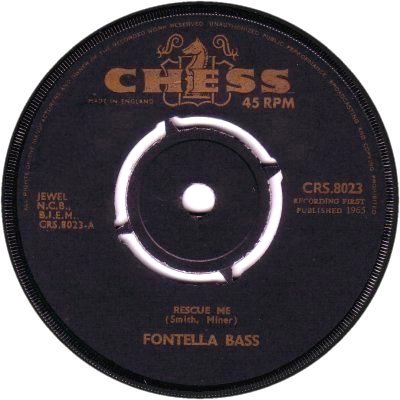
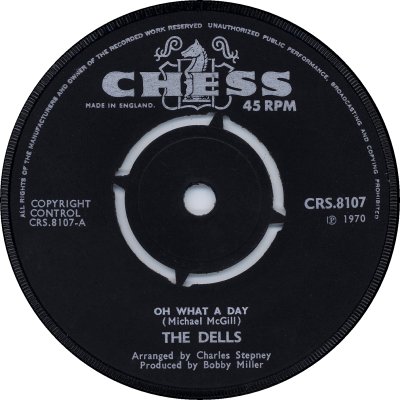
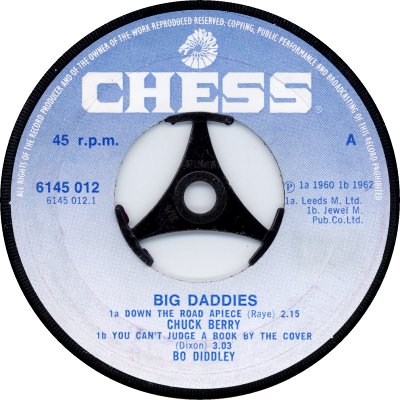
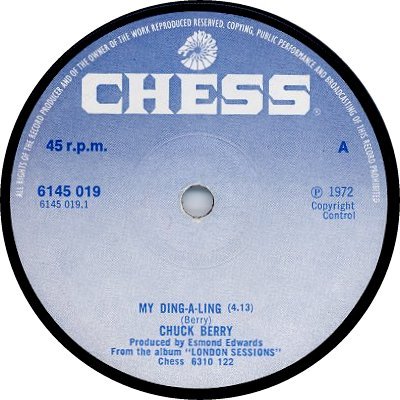
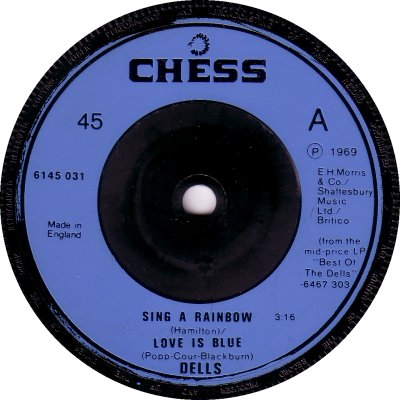
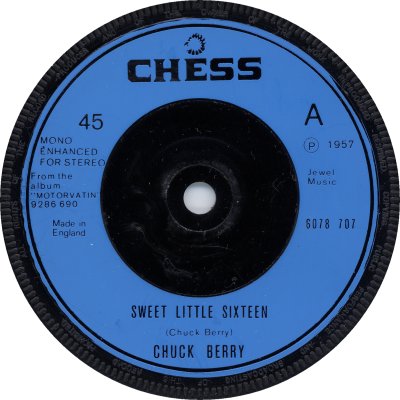
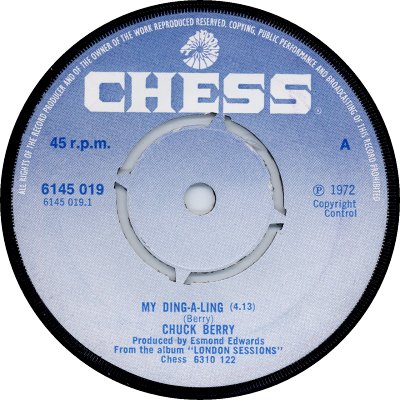
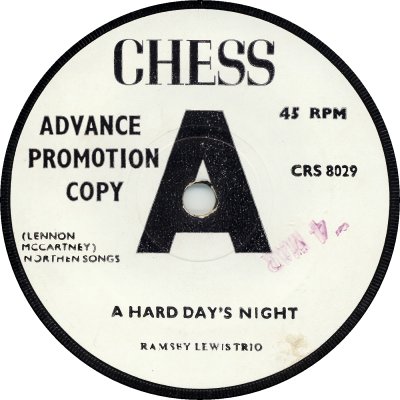
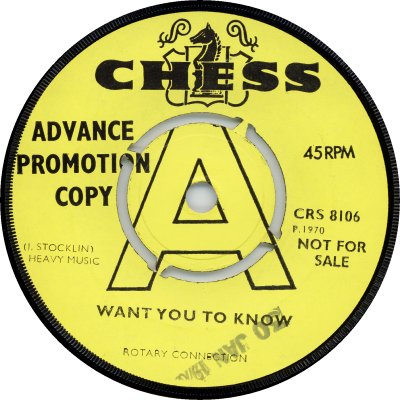
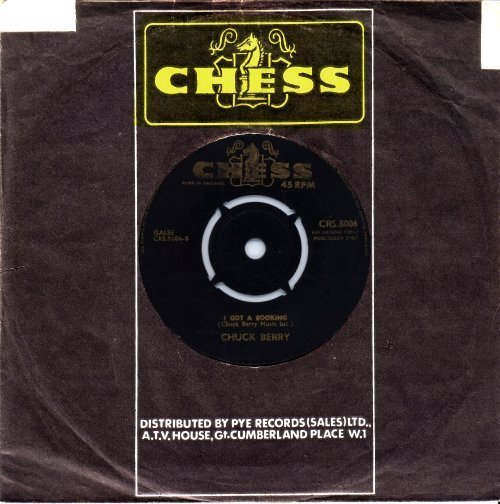
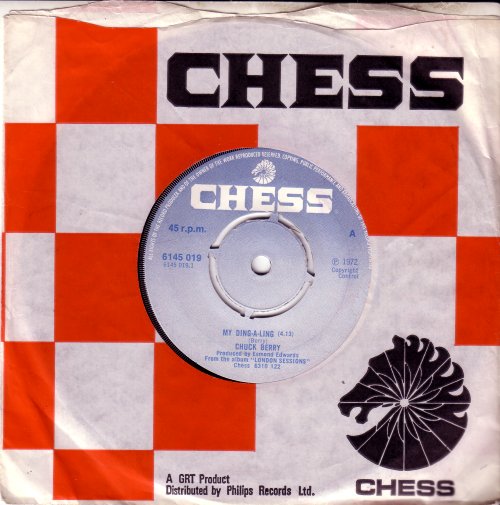
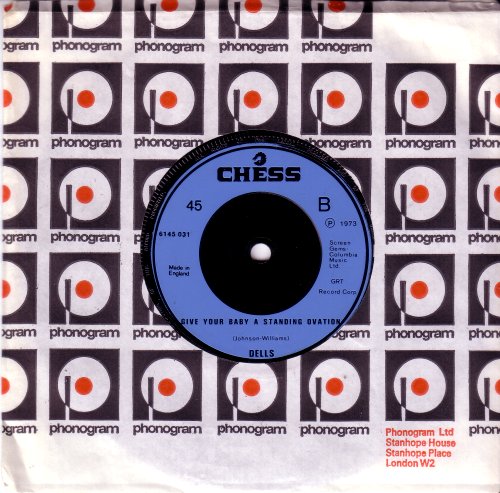
American. Chess's origins lie in the recording of Chicago blues artists made by brothers Leonard and Philip Chess in the late 1940s. The brothers joined forces with Charles and Evelyn Aron, in Aristocrat Records; they bought the Arons out in 1949 and changed the company's name to Chess. With the likes of Howlin' Wolf and Muddy Waters on its books Chess flourished, and later, in the Rock 'n' Roll era, it brought Chuck Berry and Bo Diddley to the world. The early '60s saw a move into Soul music, but the latter part of that decade was a time of gradual decline. In 1968 the Chess brothers sold the company to General Recorded Tape, a tape-duplicating firm based on the West Coast, though Leonard's son Marshall stayed on until the spring of 1970, first as vice-president and then as president.
Under GRT, Chess opened offices in Los Angeles and New York and attempted to widen its musical interests. 'Billboard' of the 2nd of February 1970, commenting on the Los Angeles development, observed in passing that the label intended to offer Pop, Country and Broadway Cast recordings in addition to its customary fare of Blues, R&B and Soul. Later that year 'BB' of the 12th of December reported that a sharp decrease in Chess's sales, and corresponding losses, had been a driving force behind the reorganization and the incorporation of Chess into the GRT Records group. 'BB' of the 13th of March 1971 broke the news that a further reorganization had taken place, with Janus (q.v.) joining Chess under the GRT umbrella. The article said that efforts were being made to revitalize Chess and to make use of its strong Blues catalogue, but those efforts seem to have been in vain. In August 1975 Chess was sold to All Platinum Records, of New Jersey, and was reduced to a reissue label.
In Britain, Chess's records were licensed to Decca initially and appeared on that company's London label. Towards the end of 1960 Pye took over the licence and began putting out Chess product on Pye International. Some four years or so later 'BB' of the 23rd of January 1965 revealed that Chess intended to introduce the Chess label overseas, and to 'step up its overseas activities'. Pye would continue to act as distributor in the UK, but control of the new label would be in the hands of its American parent. Matters progressed, and 'BB' of the 27th of February was able to state that a reception to launch Chess in its own right had been hosted by Louis Benjamin, of Pye.
When they first emerged, Chess singles were numbered in a CRS-8000 series. The first of them, Bo Diddley's 'Hey, Good Lookin'' b/w 'You Ain't Bad' (CRS-8000; 2/65) just about scraped into the Top 40, but Fontella Bass improved on that towards the end of the year when 'Rescue Me' b/w 'Soul Of The Man' (CRS-2023; 11/65) stalled just outside the Top 10. Her follow-up, 'Recovery' b/w 'Leave It In The Hands Of Love' (CRS-2027; 1/66) failed to repeat that feat, only reaching No.32. Further hits proved difficult to get. Pigmeat Markham managed a respectable No.19 placing with 'Here Comes The Judge' b/w 'The Trial' (CRS-8077; 6/68) a couple of years later, and The Dells took their medley 'I Can Sing A Rainbow / Love Is Blue' b/w 'Hallelujah Baby' (CRS-8099; 6/69) to the No.15 spot in 1969, but that was Chess's final success of the 1960s.
Chess remained with Pye until September 1971, at which point it moved to Philips, as forecast in 'Record Retailer' of the 24th of July. Some of its more popular tracks were reissued after the move, and one of them, 'Wade In The Water' b/w 'Ain't that Peculiar' by Ramsey Lewis (6145-004; 3/72), nearly got into the Top 30. Later that year the company enjoyed its biggest hit, when Chuck Berry's atypical risqué novelty song 'My Ding-A-Ling' b/w 'Let's Boogie' (6145-019; 9/72) climbed all the way to No.1. The follow-up, 'Reelin' And Rockin'' b/w 'I Will Not Let You Go' (6145-020; 1/73), which was more in his usual style, got as far as No.18, a reasonable placing. Sadly, that was to be Chess's last Chart entry. Phonogram continued to handle Chess after its purchase in 1975 by All Platinum until at least the summer of 1978, but there was only an occasional 7" release and none of the material was newly recorded. All Platinum revived Chess in the 1980s, again solely for reissues.
The first Chess label was similar to the American one of the time but with a less colourful logo. It was gold-on-black (1) until October 1966, when the print changed to silver (2); CRS-8042 was the first record affected. A new design with an updated logo was adopted after the move from Pye to Philips / Phonogram; it had been in use in the USA since late 1966, again with a more colourful logo. Paper labels were the norm at first; they usually came with large spindle holes and spiders (3) but were sometimes undinked (4). The success of 'My Ding-A-Ling' led to four-pronged versions appearing: these were custom pressings by CBS (7). Injection moulded labels were introduced in the spring of 1973. They were usually blue (5) but occasionally green; some singles can be found with either paper or injection moulded labels. There were minor variations: for 6145-037 the artist's name shifted to 9 o'clock, a one-off move. The purchase of Chess by All Platinum saw the catalogue numbers moving from 9 o'clock to 3 o'clock (6).
Philips / Phonogram singles were initially housed in a red-and-white company sleeve (11), which was replaced by an all-purpose Phonogram sleeve (12) in 1973, not long after the advent of injection moulded labels. Special promo labels were only used during the Pye years. They followed the Pye family pattern, being white (8) until the start of 1967, when they turned yellow (9). As stated above, catalogue numbers were in a CRS-8000 series at first; after the move to Philips they conformed to that company's 'seven figure starting with a 6' policy, and were initially in the 6145-000s. After the purchase by All Platinum a 6078-700 series was generally used. The discography below only covers the '70s.
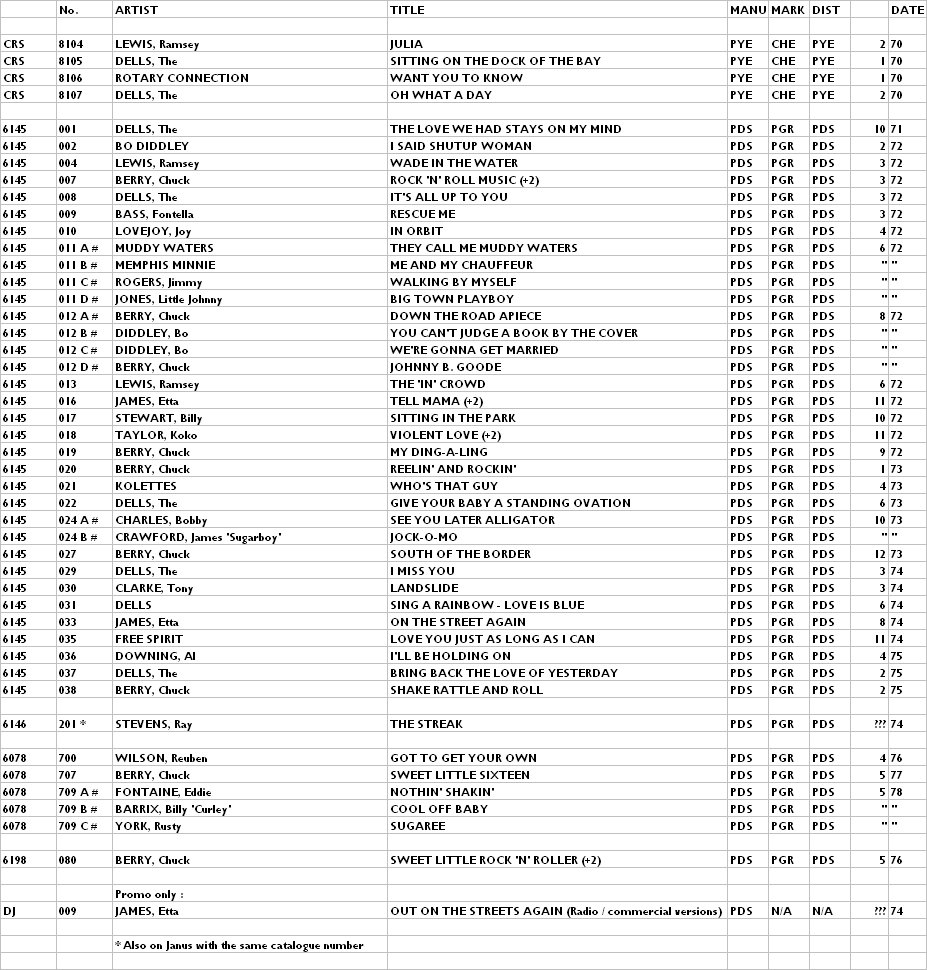


Copyright 2006 Robert Lyons.

